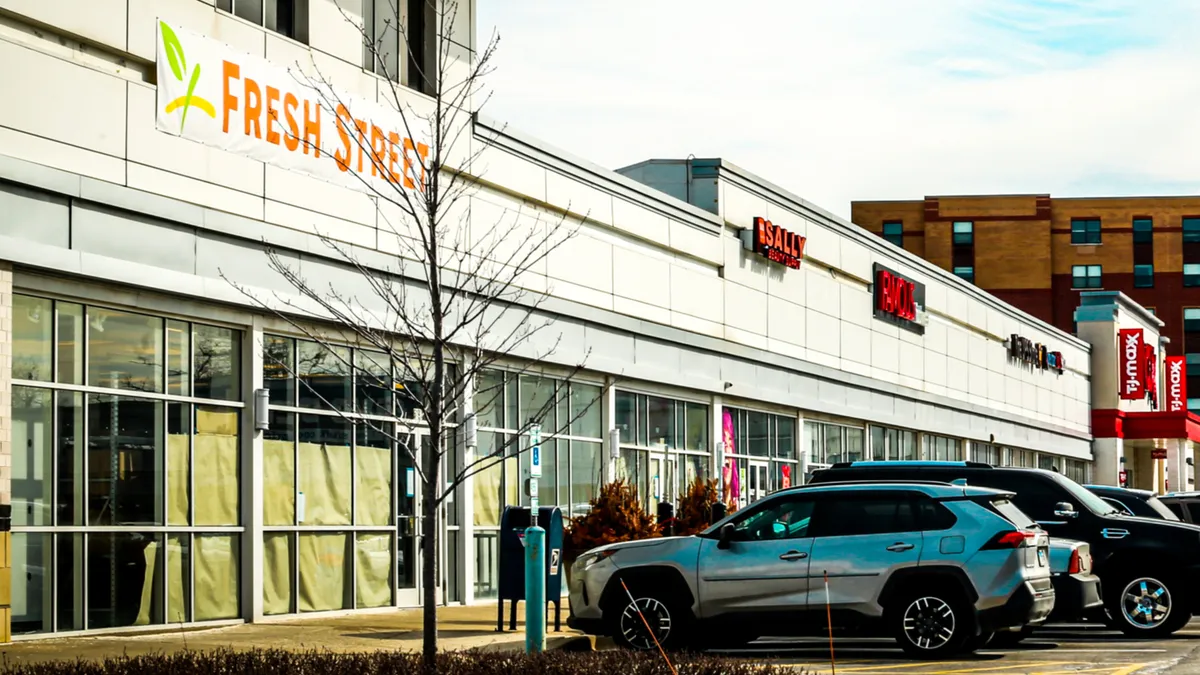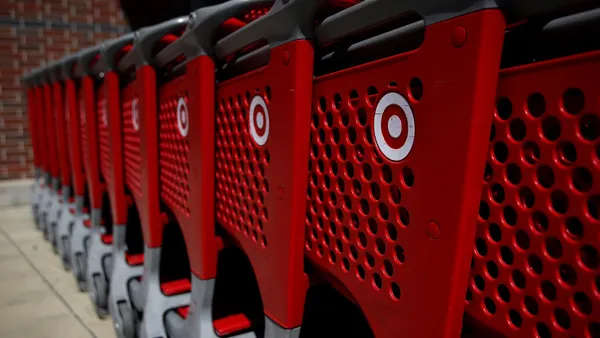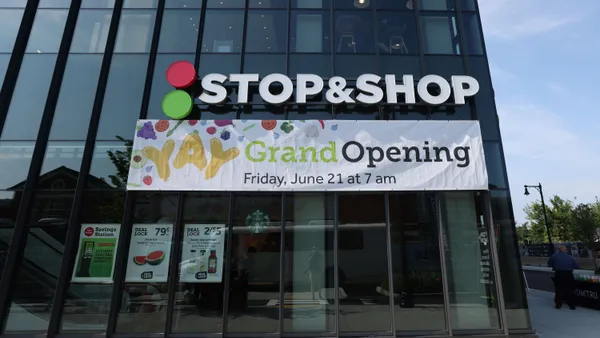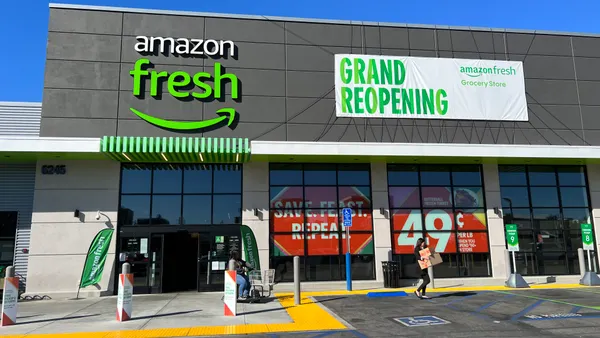Dive Brief:
- Fresh Street, an e-grocery startup that will offer only click-and-collect service, will open its first location Friday morning in Chicago, according to the company's chief executive.
- The retailer plans to have orders ready for pickup within 30 minutes and does not intend to charge order or membership fees.
- Fresh Street is looking to build its brand by promising to avoid product substitutions, which emerged as a key challenge for shoppers and retailers as grocery e-commerce took off when the pandemic struck.
Dive Insight:
Fresh Street's founders are banking on their decision not to let customers do their own shopping as they look to carve a local niche in Chicago's competitive and innovative grocery market.
The company's goal is to translate the efficiency and inventory control it will gain by tightly monitoring product movement within its facility into a highly reliable service for customers, said CEO Mike Sayles. Fresh Street aims to always provide customers with products shown as in stock on its app or website and will strive to load orders into people's vehicles within a minute of their arrival, Sayles said in an interview.
Fresh Street plans to accomplish this by limiting access to products on its shelves to its workers, who will be able to scan items as they fill orders and allow the company to display information about product availability to customers in real time, according to Sayles.
"When we did our consumer research, the No. 1 pain point … was out-of-stocks and substitute items," Sayles said. "And so when we got that feedback, one of the critical things that we then decided afterwards was we weren't going to provide an in-store experience, because when you start to provide an in-store experience, there is a natural incongruity with providing a great online experience because you lose visibility of product along the way" as shoppers place items into carts.
Fresh Street's 11,000-square-foot location, at 6191 N. Lincoln Ave., includes a small customer-accessible area where walk-up shoppers can place an order on a tablet computer or pick up their parcels, according to Sayles, who formerly served as chief customer officer of Chicago's Ferrara Candy Company. However, the company expects that most people will place orders at home and then head to the store to pick up their goods while doing other things, Sayles said.
"That's why we want to be where we are. We want to be close to where people live," Sayles said.
The store will likely need four workers to run on weekdays and need twice as many staff members to handle operations on weekends, he said.
Sayles said his experience working for Ferrara afforded him the opportunity to learn first-hand how retailers interact with product suppliers, noting that he spent time working with large retailers including Walmart and Kroger. That experience taught him lessons about the grocery industry that he used to develop Fresh Street's business model, he said.
To ensure it does not run out of items, Fresh Street will carry a relatively small selection of about 5,000 SKUs tailored to people's everyday shopping needs — an approach Sayles said is intended to allow the retailer to always maintain adequate quantities the products it carries.
"We do have a little bit of a narrower assortment, but we're going to be able to carry more inventory of the items that we have and then on the back end we'll be able to source those items from a variety of different suppliers," said Sayles, noting that Fresh Street will carry a variety of national and local brands but does not currently plan to develop private label product lines.
Pickup has emerged as the preferred channel for online grocery shoppers, who have gravitated toward the lower-fee service during the pandemic. And research shows pickup sales are still rising as overall grocery e-commerce sales decline. Some grocers, like Amazon Fresh, have experimented with pickup-only locations, while a startup in South Carolina recently opened its own depot offering curbside service for online and in-person orders.
Sayles said he senses that Chicago's grocery market is an especially suitable place for a startup like Fresh Street, adding that he and his team considered markets outside the region before deciding to start the business in Illinois' largest city. The company raised about $4 million in seed capital to fund its development and launch and hopes later to expand to at least 10 locations in the Chicago area and elsewhere.
"I think if you look at the Chicago market, and you think about where online grocery shopping is in its lifecycle here, I would say that there's still an opportunity for somebody to break through and do it really well," Sayles said.














